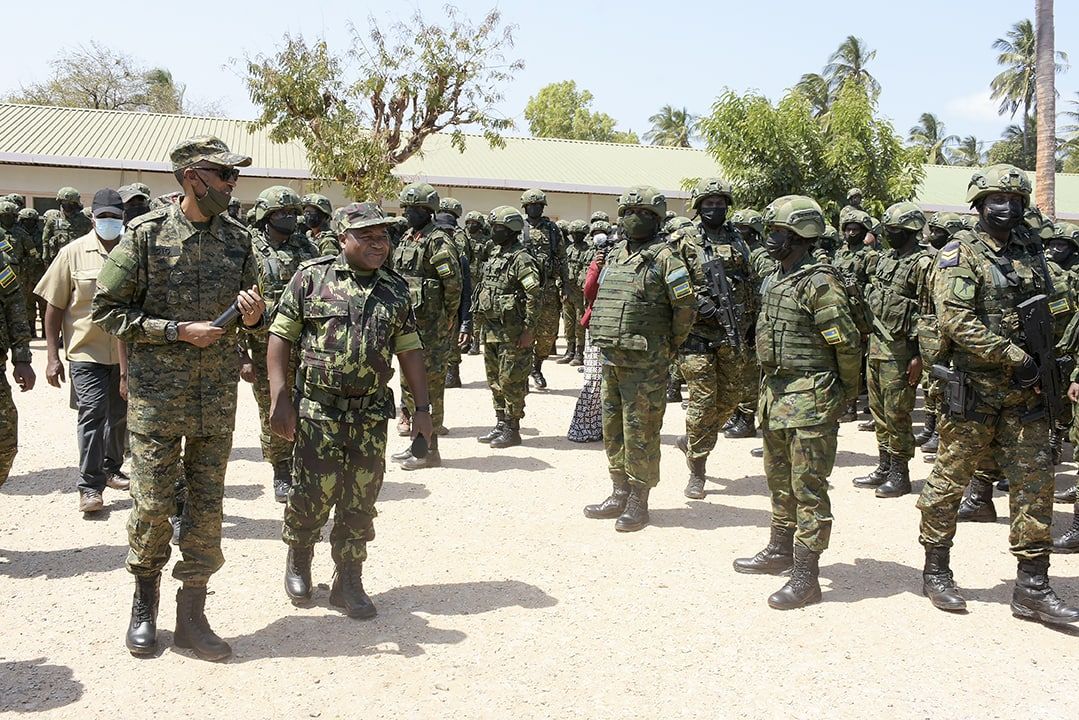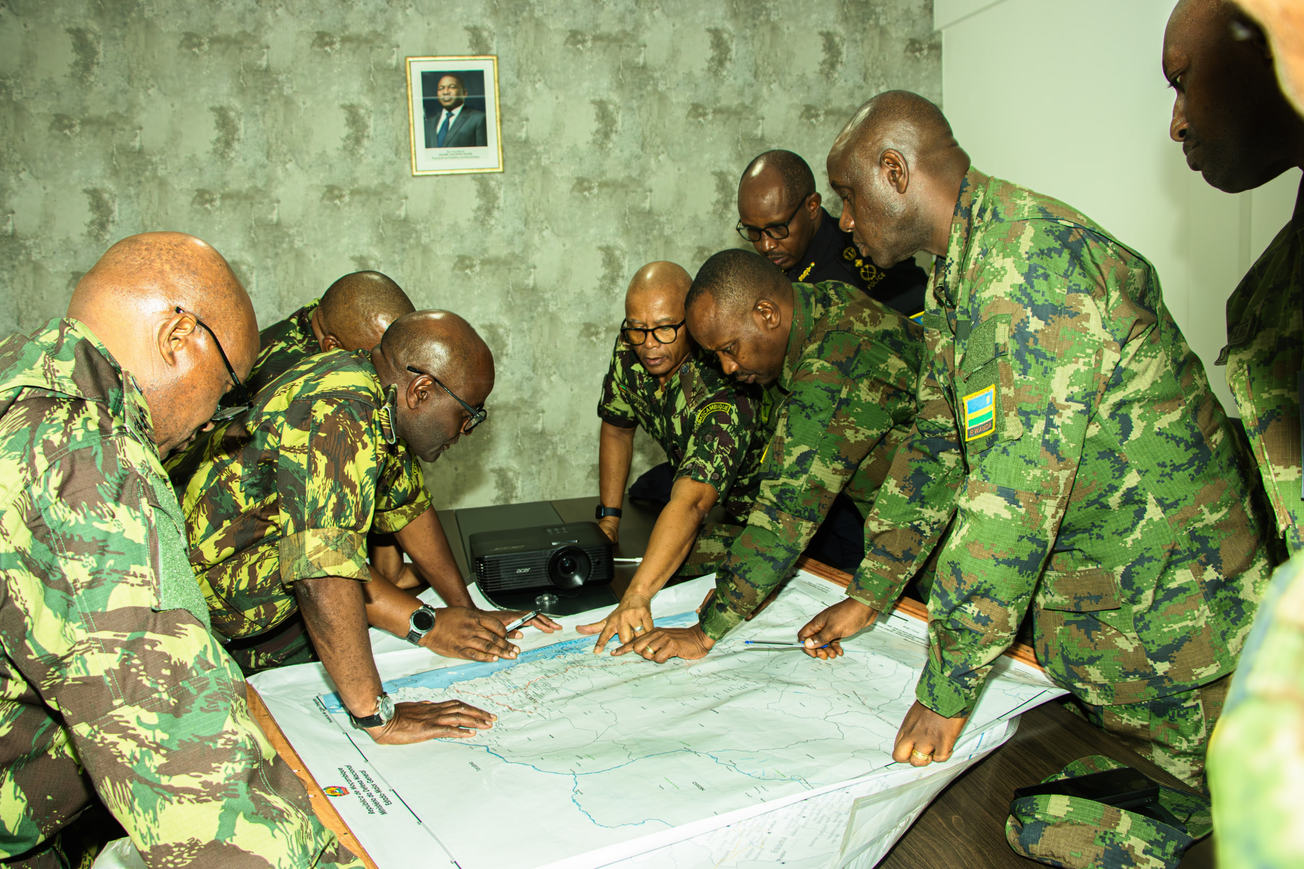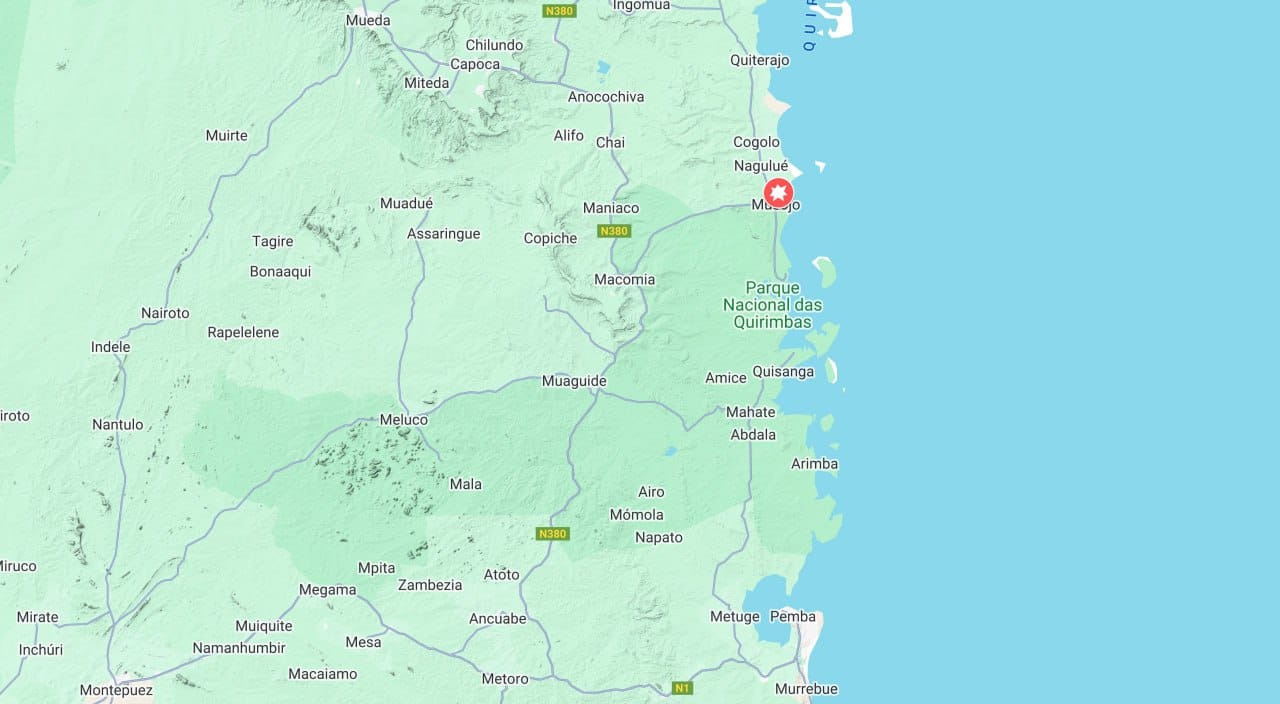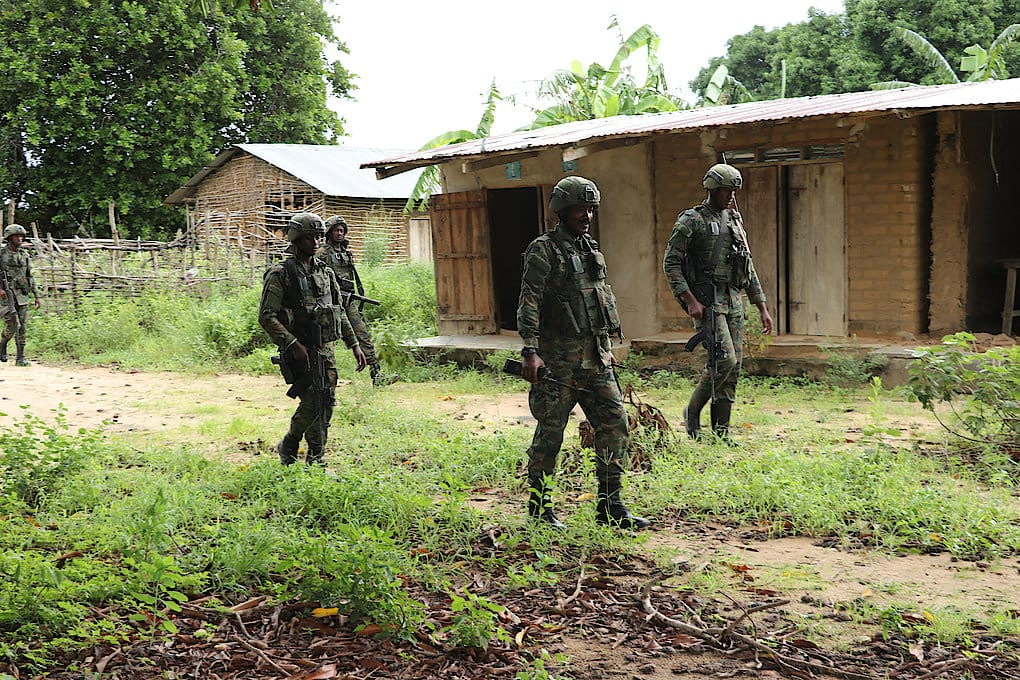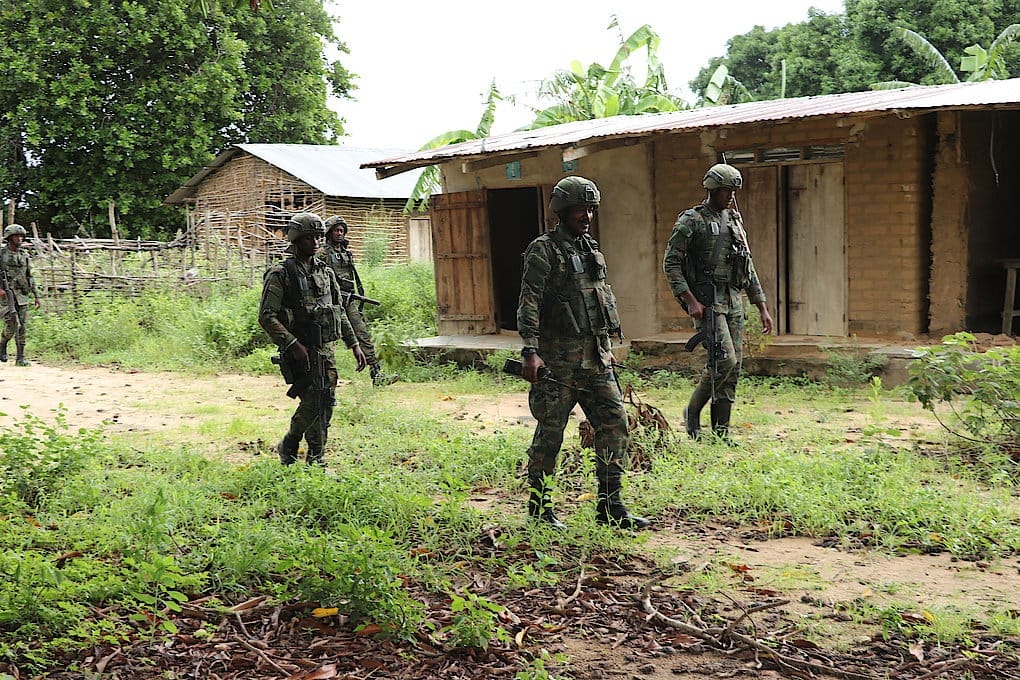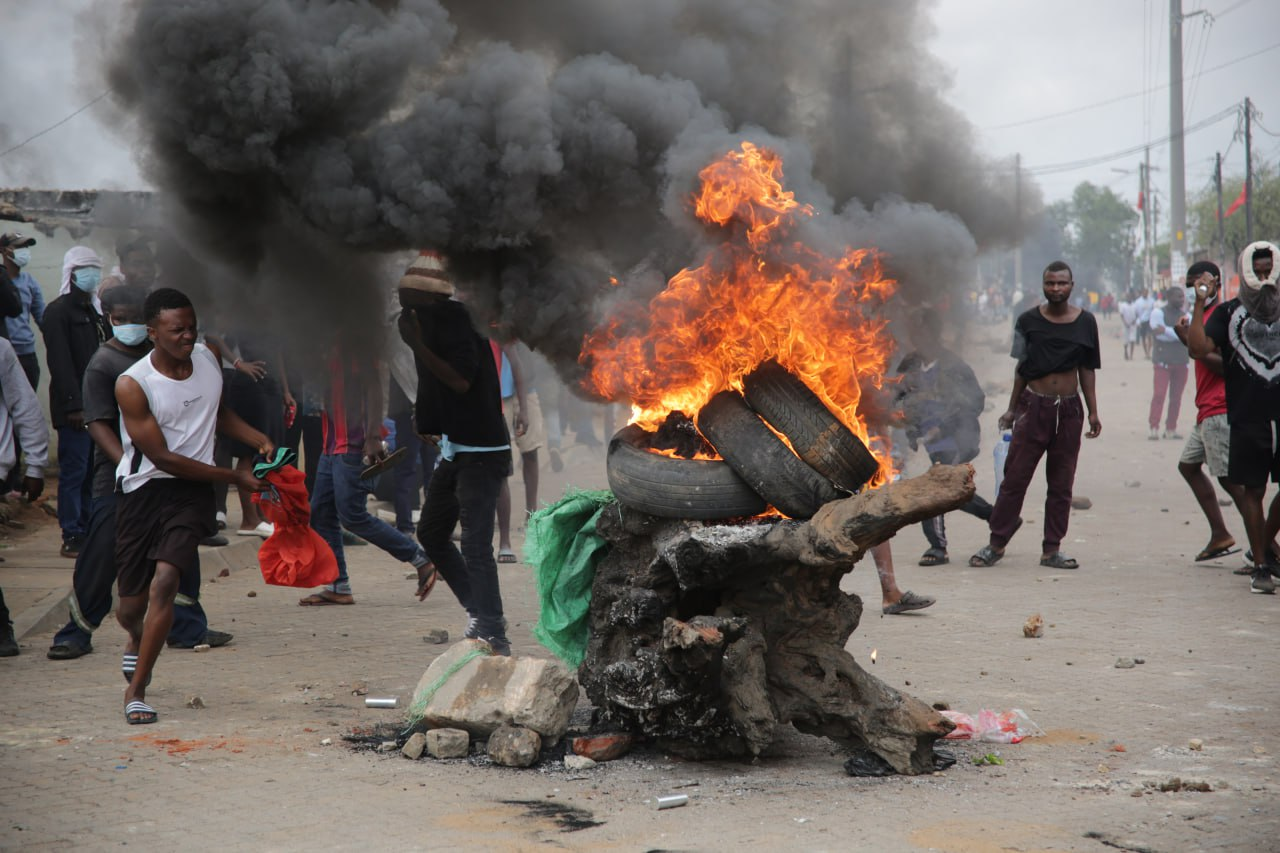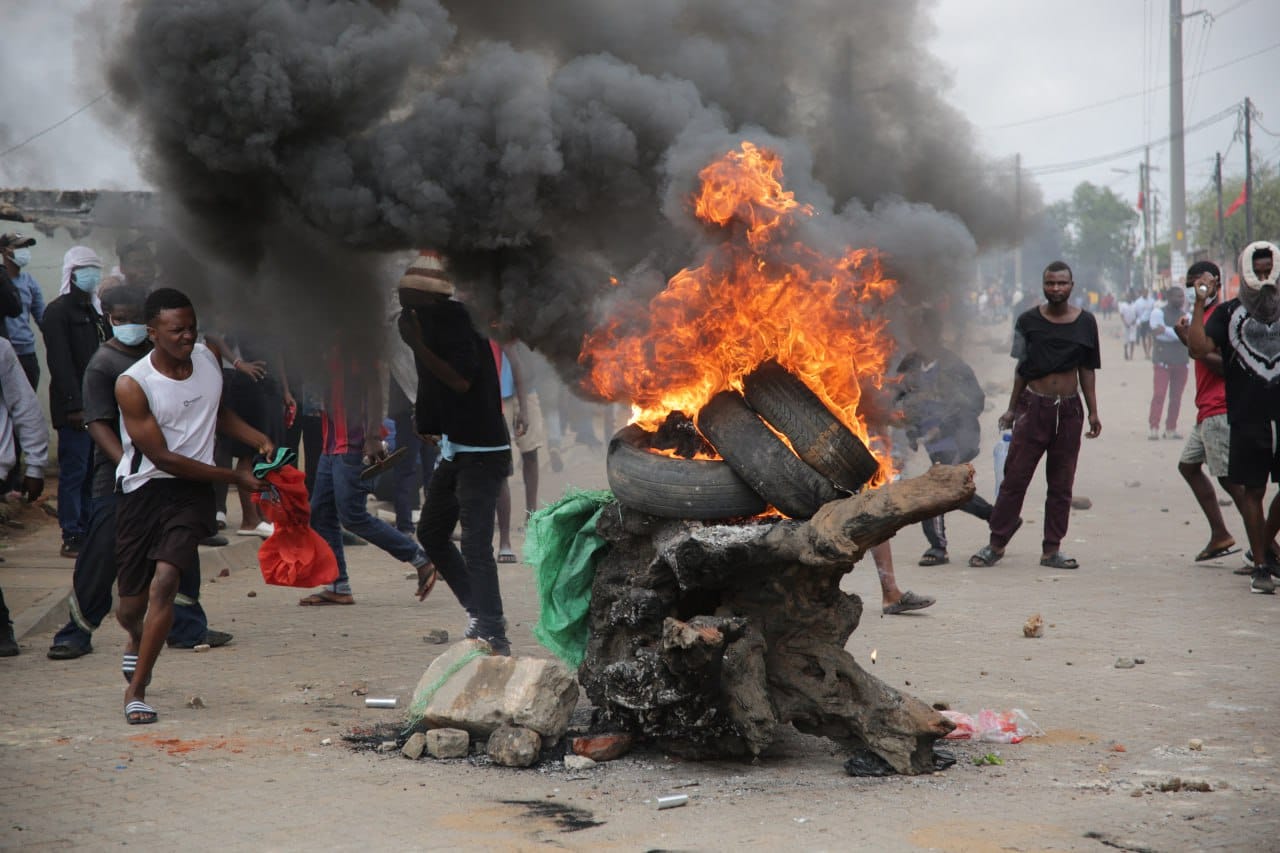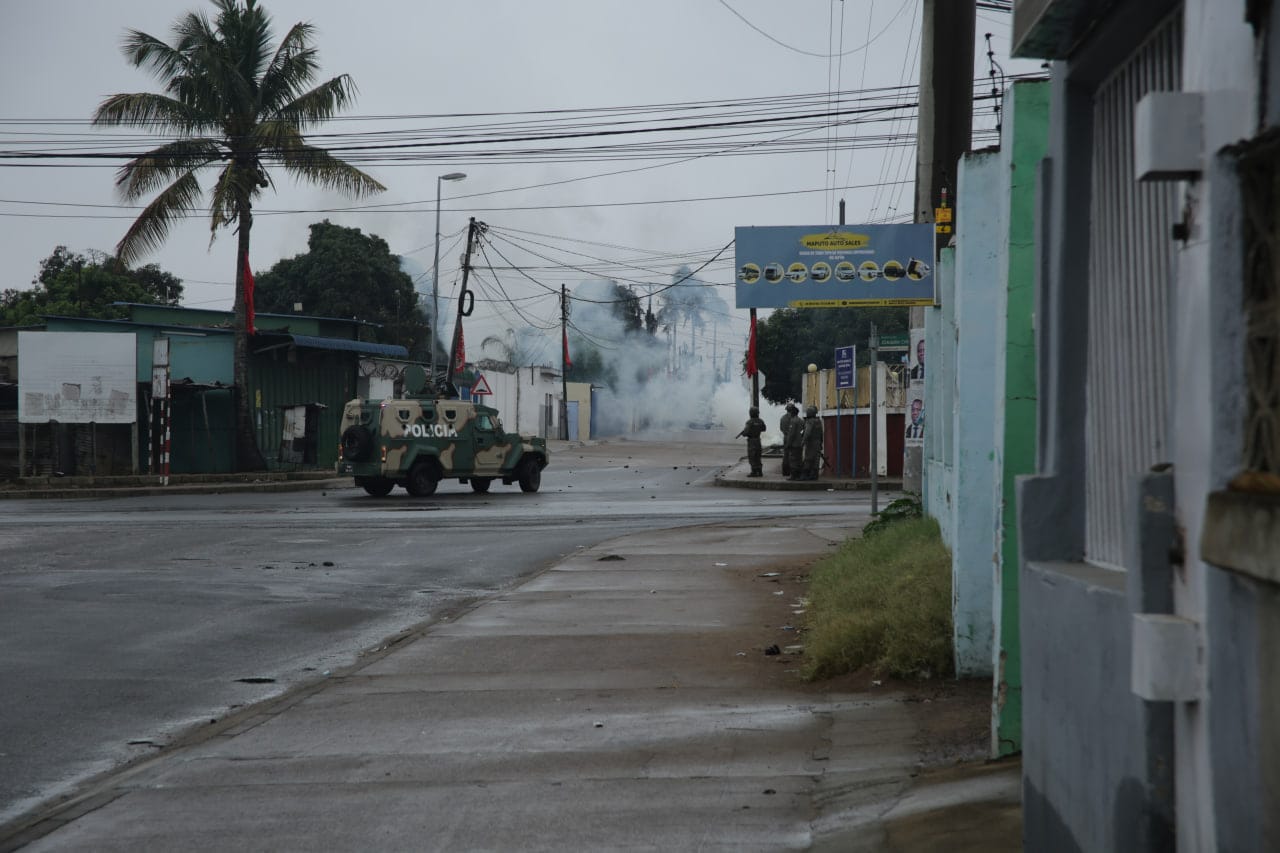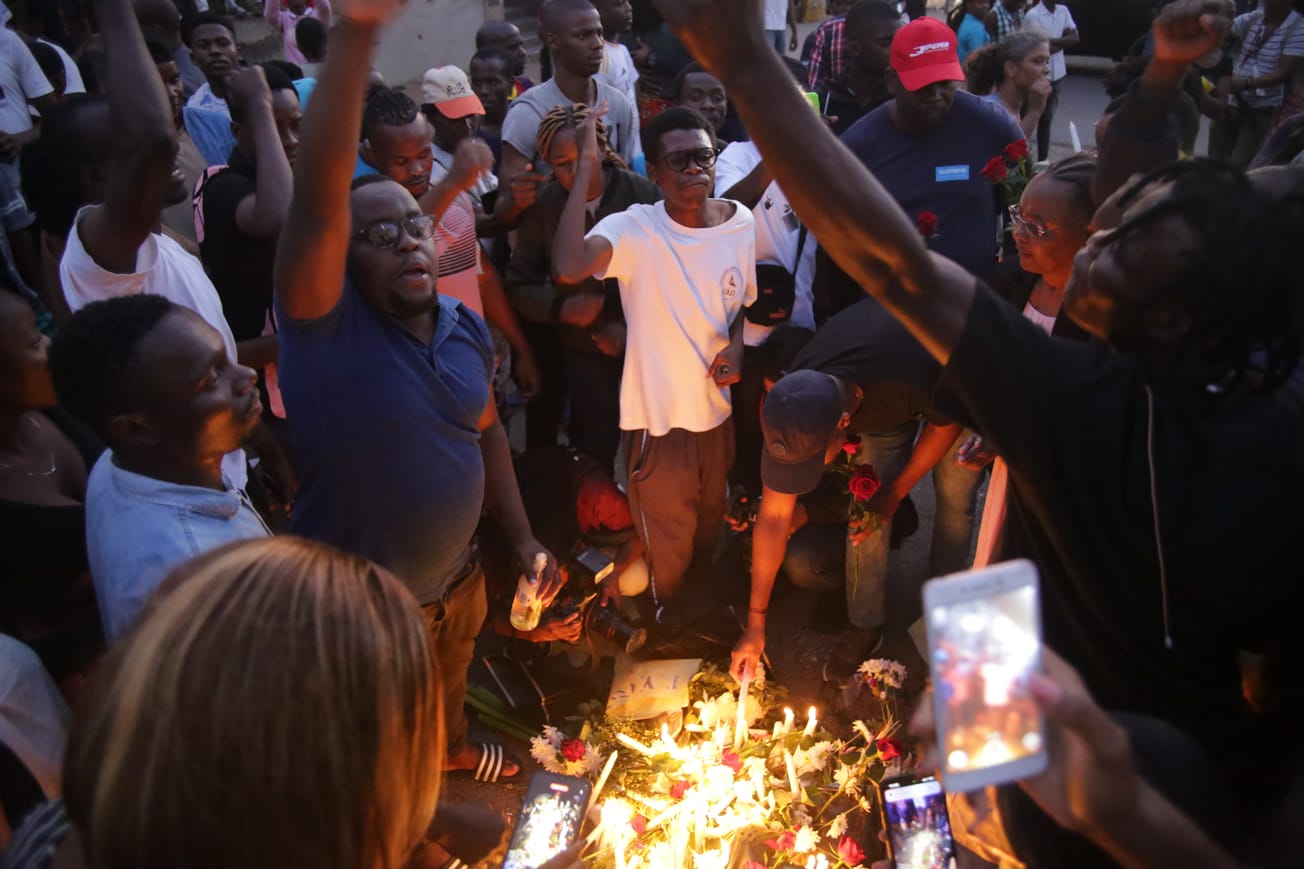By Piers Pigou, for the Cabo Ligado Monthly report for June 2022
It is just over a year since Rwanda deployed 1,000 military and police personnel to Cabo Delgado, on 9 July 2021, “to support efforts to restore Mozambican state authority by conducting combat and security operations, as well as stabilisation and security-sector reform.”
The deal struck in May 2021 by Presidents Nyusi and Kagame took most observers by surprise. Maputo had demonstrated considerable reluctance to embrace a Southern Africa Development Community (SADC) force, and there was speculation that a bilateral deal with Rwanda would mean less scrutiny that would likely accompany a multilateral intervention. Mozambique, keen to maintain as much control as possible, was able to dilute the SADC’s influence by securing Kigali’s support. This set-up, in turn, has reinforced a trust deficit between the three key security forces that continues to frustrate the development and implementation of a shared strategic plan to counter the insurgency, with respect to both hard security priorities and broader human security objectives.
The content of the security deal between Rwanda and Mozambique remains secret. Demands for greater transparency from Mozambican civil society groups and an attempt by opposition Renamo elements to debate whether the deployment required parliamentary authorization fizzled out in the face of a triumphant narrative about Rwandan successes on the battlefield.
Hitting the ground running from last July, the RDF was at the forefront of confronting insurgents in their designated areas of responsibility, the districts of Palma and Mocímboa da Praia, reoccupying the port town of Mocímboa da Praia within weeks of deployment. The first few months appeared to deliver real progress and the insurgents for the first time seemed to be on the back foot. The RDF pushed insurgents out of major bases, meeting little resistance, and presented a victorious narrative in their primary areas of responsibility. They had significant success in degrading insurgent facilities, killing and capturing a number of insurgents. Nevertheless, the bulk of insurgents avoided direct confrontation with these security offensives, and relocated, either infiltrating back into communities of displaced people, or into other areas of the province with a lighter security presence, and even in late 2021 into the neighboring province of Niassa.
In October 2021, after operations by the SADC Mission in Mozambique (SAMIM) began to gain some momentum, commanders from all three forces met to see how they could build cooperation. Mozambique had insisted it play the point role between the different forces. The fact that it took over three months to get commanders into the same room, however, generated much speculation about the fault lines in play between the three armies.
In January 2022, Rwanda and Mozambique agreed to expand cooperation on counterinsurgency operations, expanding the Rwandan force to 2,000 personnel. Again, there was no public detail on what this meant and there was no apparent SAMIM representation in the planning, further raising questions about the stated commitment to improve cooperation and coordination between the fighting forces. Both the RDF and SAMIM continue to point at their cooperation, but how and the extent to which this plays out in terms of intelligence cooperation and operational planning is unclear.
Pushing the Normalization Narrative — Fact or Fiction?
Rwanda has raised the bar in terms of its public relations approach in Cabo Delgado, providing unprecedented access to journalists, holding press conferences, and issuing statements. This has been an important part of developing and controlling the narrative, successfully portraying the progress made in terms of operations and building community relations. They have also presented their relationship with Mozambican forces as extremely positive, although this is contradicted by numerous anecdotal reports that suggest this relationship has at times been extremely fraught. Similar reports circulate about relations with SAMIM.
Nevertheless, Rwanda has continued to back a ‘normalization’ narrative, of a state regaining control of lost territory and beginning the process of re-establishing its administration. In mid-February, a joint Rwandan/Mozambican offensive pushed insurgents out of Pundanhar, in the west of Palma district. Rwandan pro-government media houses began releasing claims designed to push forward the narrative that the insurgency in northern Mozambique was on its last legs.
The success of Rwandan operations was also compared with the relatively limited progress being made by SAMIM forces, based primarily in Macomia and Nangade. A significantly smaller force, SAMIM had some success against the insurgents, but also faced criticism for not responding effectively to a number of incidents. Stories also circulated that insurgents preferred to engage SAMIM forces rather than the Rwndans, reinforcing impressions they were the premier fighting force. SAMIM forces, however, were also dealing with the large residue of insurgents who had been pushed out of Rwandan areas of responsibility.
Since late March, Rwanda has deployed outside of these areas, into northern Macomia, northern Mueda, and most recently to some southern areas recently destabilized by a slew of violent attacks. But the Rwandans, as with SAMIM before them, have been unable to make serious headway, especially in the dense forests of eastern Macomia, believed to be a bastion of remaining insurgents. Several unconfirmed reports point to Rwandan forces struggling in these areas, unable to repeat the kind of success they had demonstrated in Mocímboa da Praia and Palma districts. The Rwandans, however, have remained tight-lipped about casualties and operational drawbacks.
Violent incidents in parts of Palma and Mocímboa da Praia since April have forced a rethink as Rwandan forces look at options to return to areas they thought had been successfully pacified, and left in the hands of Mozambican security forces. This highlights a longer-term challenge, as Mozambican forces must in time take over the primary security role in the province. It also highlights the resilience of the insurgent base, as well as the limitations of existing counterinsurgency options.
Is Rwanda in for the Long Haul?
How long can Rwanda continue to keep its army and police in play? Rumors have been circulating that the deployment is costing as much as $1 million a day. Kigali claims it is self-financing its operations as part of a wider commitment to peace and security on the continent. This cost would clearly be unsustainable, especially as there is no cost recovery as with their involvement in other multilateral deployments (i.e. Central African Republic and South Sudan). Kigali categorically denies it has received financial assistance from France or a payment arrangement from Mozambique. Few believe Rwanda has the financial muscle to go this alone, and rumors persist that there is some kind of arrangement involving France and TotalEnergies, with whom Rwanda signed a development MoU in late January.
Rwanda certainly hopes to benefit from its relationship with TotalEnergies in Cabo Delgado. On the security front, it is unclear how the Mozambican government and the French oil giant will reconfigure their security MoU that was signed in August 2020, and which has proven to be patently unsatisfactory. TotalEnergies will be looking for an upgraded security deal that will likely involve the retention of a Rwandan security presence around key liquefied natural gas (LNG) installations. How this will be underwritten is likely to remain as secretive as other financing arrangements around security have been to date. Previously TotalEnergies subsidized the Mozambican 750-person security force contingent, and it seems likely that the company would have more trust in the more proficient Rwandan force, at least for the foreseeable future.
In addition, TotalEnergies reopened bidding for tenders on the envisaged resumption of major structural work in Afungi. Rwanda’s NPD, a large civil engineering firm linked to the investment arm of Rwanda’s ruling Rwandan Patriotic Front, had been reportedly shortlisted back in February. There is some speculation that NPD would get the contract as some kind of quid pro quo for Rwanda’s security investment in Cabo Delgado. When this work will actually begin is unclear, largely due to the continuing uncertainty with the security situation. A major resumption of activity in 2022, as had been envisaged, appears increasingly unlikely.
In late 2021, Rwanda approached the European Union’s (EU) Peace Facility for funding. Rwandan representatives accompanied President Nyusi to Brussels in February and to a conference at the Jordanian port of Aqaba in March in search of funding. The amounts sought were not realistic, and were predictably unsuccessful. In addition, the timing could not have been worse, as the world’s attention and funding priorities became locked onto the situation in Ukraine. The EU will provide some funds, but these are likely to be in the range of 20 to 30 million euros and in areas of non-lethal support. They are already committed to an 89 million euro military training package, and SADC also has its hand out to support its SAMIM operation.
The issue of funding is now critical for all the security actors involved if effective counterinsurgency and peacekeeping options are to be maximized. Rwanda’s involvement cannot be construed as altruistic, however much it claims it is so. There is some suggestion that they will be given preferential access to economic opportunities. On 24 September 2021, Kagame and Nyusi signed an MoU to bolster trade and investment. This agreement focuses on security and economic cooperation, specifically around mineral resources, energy, and industry. Details on the deal remain scant.
Rwanda is also accused of benefiting in other ways; it has, for example, taken the opportunity to ramp up efforts to deal with dissident elements that have found refuge in Mozambique. In June this year Rwanda and Mozambique signed an extradition treaty, which critics argue is a quid pro quo for Kigali’s assistance and will be employed to force the return of exiled Rwandans, some of whom have already been “coerced into accepting ‘voluntary’ repatriation.” Opinions remain sharply divided on whether those in the crosshairs of Kigali are criminals or bona fide refugees. Rwandan has actively sought an extradition treaty with Mozambique since 2017, as part of a wider continental and global push to chase down fugitives. In May 2021, Cassien Ntamuhanga, a vocal critic of Kagame, was arrested in Mozambique by police and intelligence agents. Ntamuhanga had been convicted on charges of terrorism, genocide denial, and inciting disaffection with the government in 2015, and was sentenced to 25 years. He subsequently escaped from prison in 2017 and fled to Mozambique where he applied for asylum. On 6 May 2021, he was tried in absentia and sentenced to a further 25 years for facilitating terrorist activities and financing bombmaking. Seventeen days later he was arrested and disappeared. Rwanda denies allegations of involvement in Ntamahunga’s arrest; his whereabouts remain unknown.

